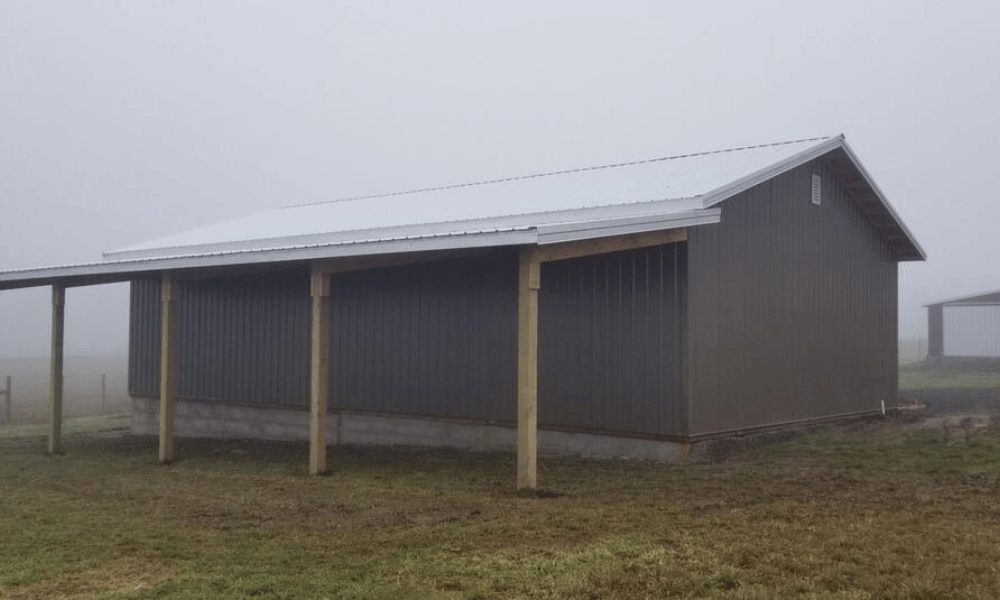Introduction: Why Insulation Matters for Your Pole Barn Garage
When it comes to maintaining a comfortable environment in your pole barn garage, insulation is the unsung hero. Whether you’re using it as a workshop, storage space, or even a man cave, effectively insulating your pole barn garage can make all the difference. This guide delves deep into the world of insulation, covering everything from materials and techniques to seasonal considerations.
You might be wondering, "Why should I insulate my pole barn garage?" The answer is simple: proper insulation helps regulate temperature, reduces energy costs, and provides a more comfortable space year-round. So buckle up as we explore The Ultimate Guide to Insulating Your Pole Barn Garage for All Seasons!
Understanding Your Pole Barn Garage
What is a Pole Barn Garage?
A pole barn garage is essentially a structure that uses large poles or posts as its primary support system. This design allows for wide-open spaces without the need for load-bearing walls. These garages are versatile and can be customized to meet various needs.
Benefits of Having a Pole Barn Garage
Cost-Effective Construction: Compared to traditional garages, pole barns are often cheaper to build. Versatility: They can serve multiple purposes—from housing vehicles to functioning as workshops. Durability: Built with sturdy materials, they stand strong against harsh weather conditions.The Importance of Insulation in a Pole Barn Garage
How Does Insulation Work?
Insulation works by slowing down the transfer of heat between the inside and outside of your garage. In winter, it keeps warmth in; during summer, it prevents heat from seeping in. This is particularly crucial for pole barn garages since their structure may allow more temperature fluctuations than traditional buildings.
Energy Efficiency and Cost Savings
Insulating your pole barn garage can lead to significant energy savings over time. A well-insulated space requires less heating and cooling, which translates into lower utility bills.
Types of Insulation Materials for Your Pole Barn Garage
Fiberglass Batts and Rolls
Fiberglass batts are one of the most common types of insulation used in garages due to their affordability and ease of installation.
Pros:
- Inexpensive Easy to install
Cons:
- Can cause skin irritation if not handled properly Not moisture-resistant
Spray Foam Insulation
This option expands upon application and fills gaps effectively.
Pros:
- Excellent air sealant High R-value (thermal resistance)
Cons:
- More expensive than fiberglass Requires professional installation
Rigid Foam Board Insulation
Ideal for exterior applications or when you need high thermal resistance without adding significant bulk.
Pros:
- Lightweight yet effective Water-resistant
Cons:
- Can be more costly than other options Requires precise cutting during installation
Choosing the Right Insulation for Seasonal Use
Winter Considerations: Keeping Warm in Cold Weather
In winter months, temperatures can drop significantly. Choosing insulation that retains heat is crucial.
Summer Considerations: Staying Cool During Hot Months
Conversely, during summer months, it’s important that your pole barn garage remains cool and comfortable.
Installation Techniques for Your Pole Barn Garage
Prepping Your Space Before Installation
Before diving into installation, proper preparation is key:
Clear out any belongings. Repair any structural damage. Clean surfaces where insulation will be installed.DIY vs Professional Installation: Which Is Right for You?
If you're handy with tools and have some experience under your belt, DIY installation could save you money. However, complex installations—especially involving spray foam—may be best left to professionals.
Understanding R-values and Their Importance in Insulation
What is an R-value?
R-value measures insulation's ability to resist heat flow; higher values indicate better insulating properties.
How Much R-value Do You Need?
For pole barn garages located in colder climates, aim for an R-value between 19 and 30 depending on local building codes.
Proper Ventilation: A Key Component of Effective Insulation
Why Ventilation Matters
While insulation keeps your space warm or cool, ventilation ensures airflow which prevents moisture buildup—a leading cause of mold growth.
Maintaining Your Insulated Pole Barn Garage Year-Round
Regular Checks on Insulation Integrity
Inspect your insulation regularly—look out for sagging batts or signs of moisture damage—and address issues promptly before they escalate into bigger problems.

Cleaning Out Debris
Keep gutters clear and ensure that landscaping doesn’t allow water pooling near the foundation of your pole barn garage.
FAQs About Insulating Your Pole Barn Garage
1. What’s the best type of insulation for a pole barn?
The best type depends on your specific needs; however, spray foam offers superior air sealing capabilities while fiberglass batts provide cost-effective solutions.
2. How much does it typically cost to insulate a pole barn garage?
Costs vary widely based on materials used but expect anywhere from $1-$3 per square foot on average.
3. Can I insulate my pole barn garage myself?
Yes! If you're comfortable with basic construction techniques and tools, many homeowners successfully complete DIY projects with fiberglass batts or foam boards.
4. Will insulating my garage increase its value?
Absolutely! An insulated structure appeals more to potential buyers who appreciate energy efficiency and comfort features.
5. Do I need permits to insulate my garage?
Check local building codes as requirements vary by region; some areas may require permits especially if altering existing structures significantly.
6. How do I know if my insulation is working effectively?
Signs include consistent indoor temperatures regardless of outdoor conditions; high heating/cooling costs may indicate inadequate insulation performance.
Conclusion: Transforming Your Pole Barn Garage with Proper Insulation
By now you should see just how critical it is to properly insulate your pole barn garage—not only does it enhance comfort but also boosts energy efficiency while potentially increasing property value! Remember this guide next time you're contemplating garage services Cottage Grove ways to make your workspace more livable year-round!
So go ahead—take action today! With proper planning and execution using this comprehensive guide titled The Ultimate Guide to Insulating Your Pole Barn Garage for All Seasons at hand, you'll be well-equipped to tackle any project ahead!